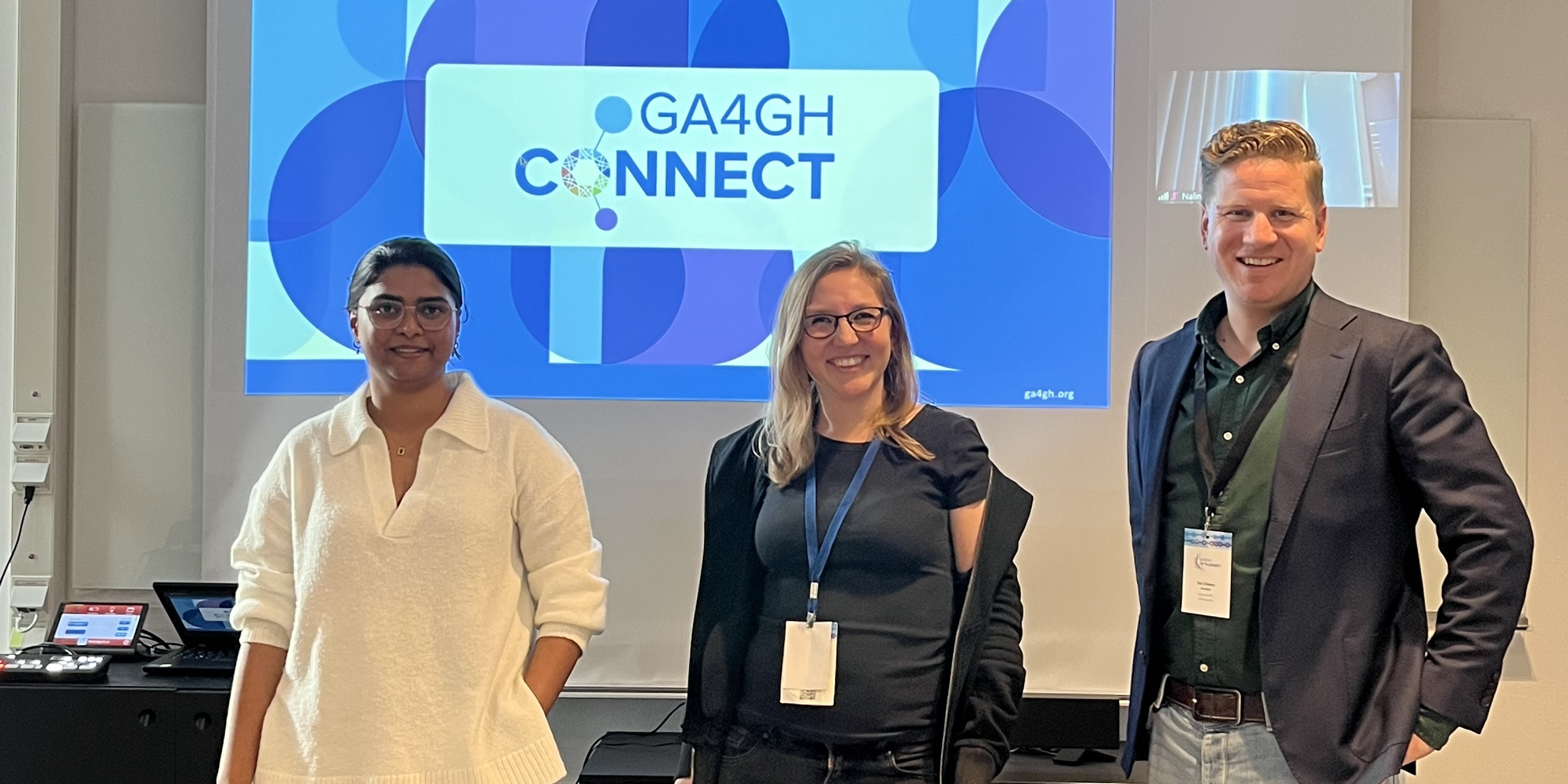Generating Guidelines for Community-Driven Portals for Infectious Disease Research
Published: 2025-11-06

During the 13th Plenary of the Global Alliance for Genomics and Health (GA4GH), the global research community came together to discuss what types of information should be included on community-driven infectious disease research portals. The aim was to develop guidelines to aid new portals in understanding the types of content that could potentially be included and how to prioritise it. This has been found to be crucial in strengthening and expanding the interconnected network of pathogens portals (comprising both local nodes, like the Swedish Pathogens Portal, and the central Pathogens Portal hosted by EMBL-EBI).
The session consisted of speakers representing the Pathogens Data Network (PDN) (Aitana Neves from Swiss Institute of Bioinformatics), and local nodes from Sweden (Liane Hughes and Nalina Hamsaiyni Venkatesh, from Uppsala and Umeå universities), Spain (Sarai Varona Fernández from Instituto de Salud Carlos III), and the Netherlands (Ted Oliekan from Erasmus MC). The talks were followed by an interactive group discussion.
The talk from PDN focused on how portals were connected, and the importance of this for pandemic preparedness, whilst the nodes each discussed their approaches for identifying and appropriately prioritising content. Speakers from the nodes emphasised the importance of balancing local flexibility with global alignment, ensuring that each national node can respond to its community’s needs while contributing to a cohesive international framework. During the group discussion, the participants and speakers were prompted to identify key priorities for building future-ready portals. The discussion led to emerging recommendations, including the development of shared, yet adaptable guidelines for portal structure and governance, adopting GA4GH tools and standards (e.g. Beacon) for interoperability, and establishing consistent citation and acknowledgment practices for portal content. The participants highlighted the need for enhanced training, community consultation, and knowledge exchange across national nodes, supported by diversified funding to ensure long-term sustainability.
The session closed with a shared commitment to continue developing guidelines for community driven portals for infectious diseases. Participants agreed that this was an important step in ensuring that infectious disease data is discoverable, shared ethically, and achieves maximum impact.